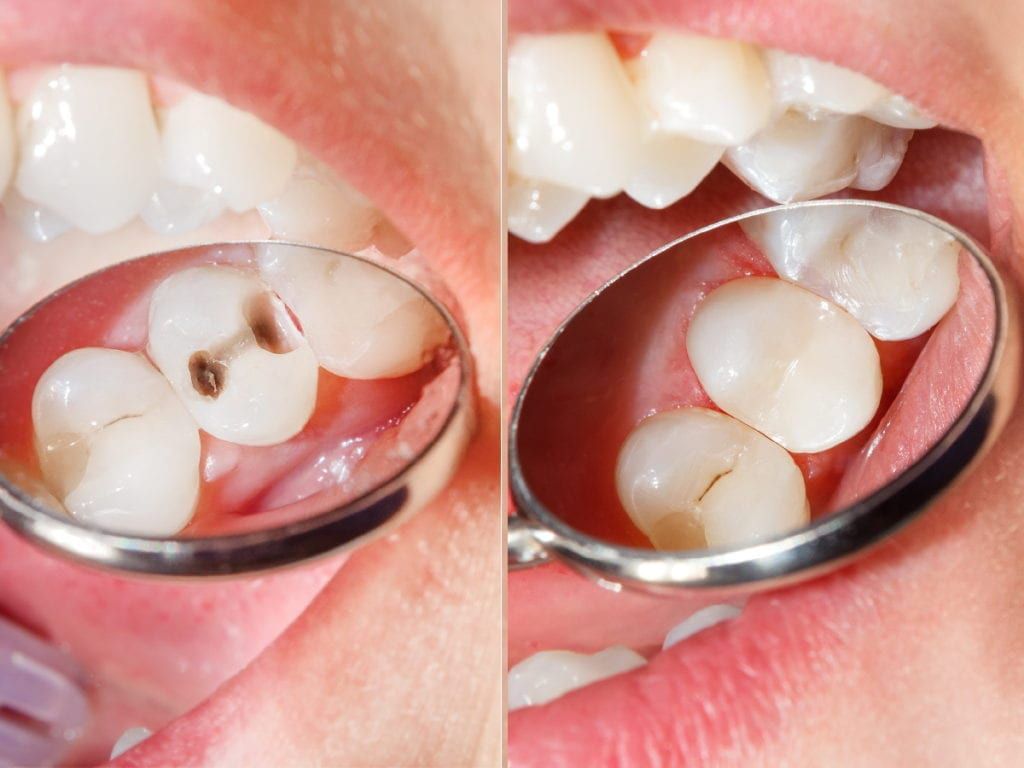
Resin Composite Fillings
A resin composite filling for deciduous teeth, also known as baby teeth or primary teeth, is a dental restoration that involves the use of tooth-colored composite materials to repair a decayed or damaged tooth. These fillings are commonly used in pediatric dentistry to restore the form and function of a tooth affected by cavities.
Resin composite fillings are made of a tooth-colored material composed of a mixture of plastic and fine glass particles. This allows the filling to closely match the natural color of the tooth, providing a more aesthetic result compared to traditional silver amalgam fillings.
The primary purpose of a resin composite filling in deciduous teeth is to restore the tooth’s structure and function after the removal of decayed or damaged tooth material. The filling helps to prevent further decay and preserves the integrity of the tooth.
The dentist begins by removing the decayed or damaged portion of the tooth, leaving a clean and prepared cavity. Unlike amalgam fillings, composite fillings allow for more conservative tooth preparation, preserving more natural tooth structure.
Resin composite fillings are bonded to the tooth using an adhesive. This bonding process enhances the strength of the filling and helps to seal the margins, reducing the risk of recurrent decay.
One of the significant advantages of resin composite fillings is their aesthetic appearance. The color of the filling can be customized to closely match the natural color of the tooth, making it a more discreet option compared to silver amalgam fillings.
Resin composite fillings are versatile and can be used for both front and back teeth. They are suitable for small to moderate-sized cavities in deciduous teeth.
Composite materials are biocompatible and do not contain mercury, making them a suitable choice for pediatric dentistry.
The resin composite material is placed in layers and cured (hardened) using a special curing light. This allows the dentist to sculpt and shape the filling for optimal function and appearance.
After the placement of a resin composite filling, patients can resume normal activities immediately. There may be some sensitivity initially, but this typically subsides. Good oral hygiene practices and regular dental check-ups are essential for maintaining the health of the restored tooth.
Resin composite fillings are a popular choice for pediatric dentistry due to their aesthetic benefits and the ability to provide a reliable restoration for deciduous teeth. However, the decision to use resin composite or other filling materials depends on factors such as the size of the cavity, the location of the tooth, and the individual needs of the child. Pediatric dentists will consider these factors to determine the most suitable treatment approach for each case.
